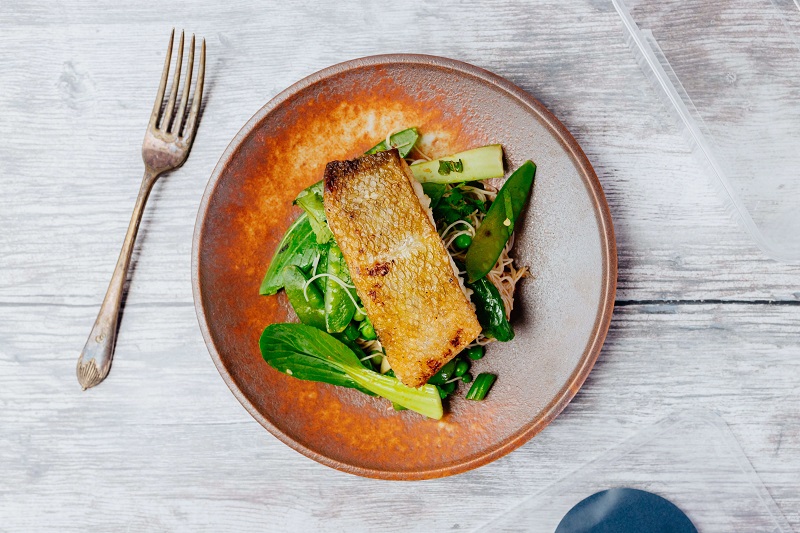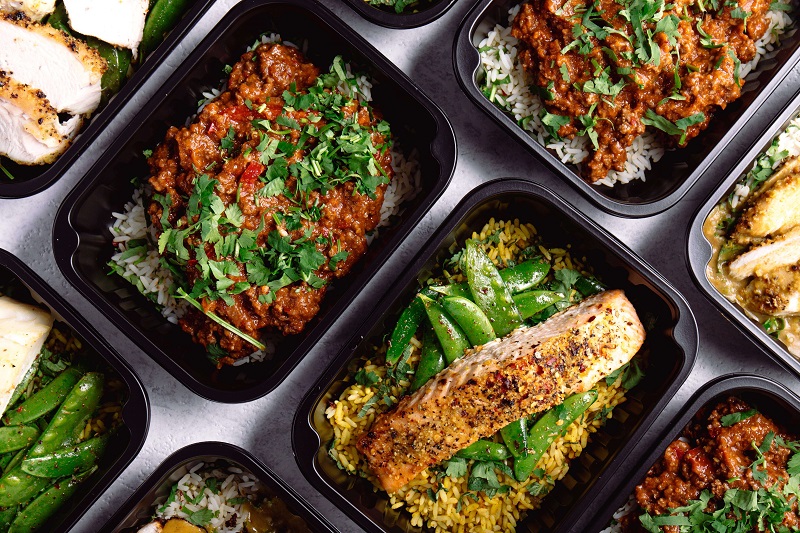
Mental Health Awareness Week: 10-16 May 2021
This Mental Health Awareness Week, it is time to step up the fight for mental health. This year’s theme for Mental Health Awareness Week is Thrive to Survive. We spoke to Revive Nutrition’s professional chefs to learn more about you can manage your mood with food to help you survive and thrive through trying times.
We all have some understanding of how the right foods can give your brain energy, help to fight inflammation, and get your general health and shape back on track. Yet what most people fail to understand is how particular foods also contribute positively to your mental health, by improving your mood, whilst other foods can be destructive and negatively impact your stress levels with the potential of leading to common issues such as depression or anxiety.
According to the World Health Organization, mental health problems are the biggest cause of the overall disease burden worldwide, with 300 million people worldwide living with depression.
In the UK alone, one in four people will experience a mental health problem each year, while one in six people report experiencing a common mental health problem such as anxiety every week.
It’s widely understood that increasing your levels of physical activity can help improve your mental health, but it is also crucial to understand how your diet can positively increase your mood.
Mood-boosting foods
By now we have all heard of feeling hangry, a mixture of hunger and anger to define someone who needs food right now! People get hangry when their blood sugar drops, which can in turn spiral into a foul mood. Feeling good comes from a balanced diet that provides sufficient amounts of healthy natural carbohydrates at regular intervals throughout the day to keep blood glucose levels stable. It is very important, and a good start, to eat breakfast.
Furthermore, it is important to ensure our diets are diverse and our meals varied to make sure we able to concentrate and remain fully focused. You should eat plenty of fruits, vegetables and wholegrain cereal foods, with some protein, including oily fish. This type of varied diet will provide a broad variety of vitamins and minerals to support our body’s functions. According to the British Dietetic Association, “the ability to concentrate and focus comes from the adequate supply of energy – from blood glucose – to the brain. The glucose in our blood comes from all the carbohydrates we eat – foods including fruit, vegetables, cereals, bread, sugars and lactose in milk.”
At Revive Nutrition we offer a varied meal prep selection including an equal proportion of protein, vegetables and healthy carbohydrates. You have the opportunity to choose from various sources of protein, be it, chicken, salmon, white fish, brisket or plant-based alternatives. We offer a massive selection of local produced vegetables and we include healthy carbohydrates such as rice, rice noodles and sweet potato.

Top five mood boosting food categories:
- Protein-rich foods: Ever wonder why you feel a sudden high after exercise? You may have heard serotonin is the ‘feel-good chemical’, which is released during and after physical exercise, experts have linked it to lower levels depression. Therefore, it is important that your diet includes foods that can boost your levels of serotonin. Foods like chicken and turkey contain tryptophan, an amino acid which can trigger serotonin.
- Sunshine vitamins: Vitamin D, has long been linked with benefits for both mood and overall mental health. While it is naturally achieved through sunlight – and we can all attest to in the UK, we tend to suffer from a lack of it. Although, there are a small number of foods which can help. Good sources of Vitamin D include oily fish such as salmon and sardines, as well as egg yolks and fortified foods such as wholegrain.
- Iron-rich foods: Foods that contain high levels of iron, such as red meat (beef brisket etc), poultry, and pulses (beans and lentils) will make you feel more energetic.
- Fresh Fruit: Blueberries contain vitamin C and antioxidants, both of which our bodies need to help repair and protect cells. Oranges also contain vitamin C, which is known to lower blood pressure and stress hormone cortisol.
- Leafy greens: Whilst they are not always the most appetising, leafy greens can again have a massively positive impact on your mental wellbeing, similarly to fresh fruit they can also regulate cortisol levels. They contain folate, which helps in boosting your mood. We add a variety of green to each and every one of our freshly prepared meal prep options.
Top five potentially stress inducing and negatively mood affecting food categories:
- Sweets: It is natural to crave a sweet treat when you’re feeling stressed and want to indulge, we all feel like that from time to time. Although, the sudden consumption of increased sugar can lead to energy crashes, irritability and increased food cravings, meaning you should resist sugar-highs such as sweets.
- Processed foods: It is obvious isn’t it– processed foods have the lot, they are high in fat, salt, artificial additives and offer very little in the way of little nutritional value. It’s these foods that that directly increase our cortisol levels, adding to any stress you may be feeling.
- ANYTHING deep fried: Plenty of us love fried chicken and chips after a night out. Unfortunately, the high processed carb and fat content within these foods may give you a sudden burst of energy in the short term, it’s likely to lead to blood sugar crash later on. Generally, it’s best to avoid to fried food, stick to lean proteins and unprocessed carbohydrates to give you more energy in the long run.
- Alcohol: Regular, heavy drinking interferes with chemicals in the brain that are vital for good mental health. Therefore, while we might feel relaxed after a drink, in the long run, alcohol has an impact on mental health and can contribute to feelings of depression and anxiety and make stress harder to deal with. Furthermore, feelings of anxiety can happen with a hangover, too. For some, these feelings are barely noticeable. But if anxiety is already an issue, the hangover effect can make those symptoms worse.
- Caffeine: Caffeine is mainly found in coffee, tea, cola, dark chocolate and energy drinks. Many of us rely on coffee to get us through any given day. But a high intake of caffeine is likely to a disruptive effect on sleep and may cause the adverse effects of irritability and lead to persistent headaches. Sleep is connected to mood and not having a constant sleeping pattern can seriously affect your mental state.
Ultimately the key is to eat 3 square meals a day with a diverse combination of fruits, vegetables and wholegrain cereal foods, with some protein, including oily fish. Meal prep services are a great way to attain this whilst maintaining a busy work life and schedule. At Revive Nutrition we offer a range of over meals including a variety of ingredients that are scientifically proven to improve both mental and physical wellbeing. Visit our website to learn more about our meal prep packages and find one that suits you.
Revive Nutrition – Mental Health Awareness Week: 10-16 May 2021
Research:
